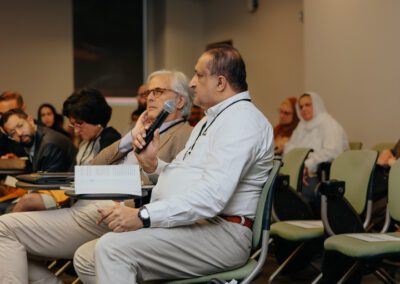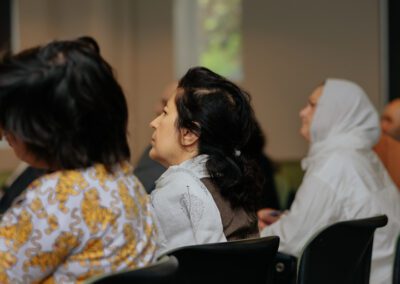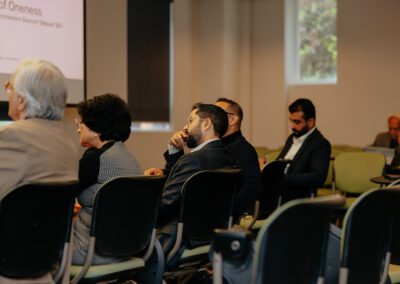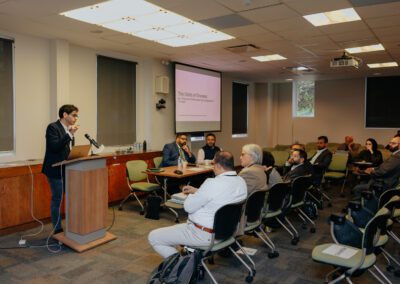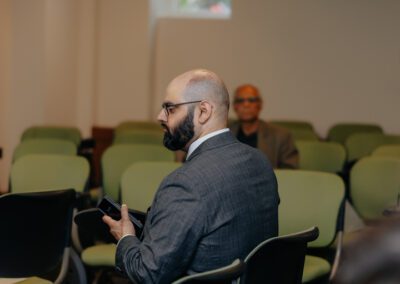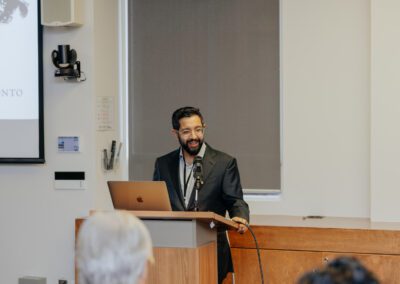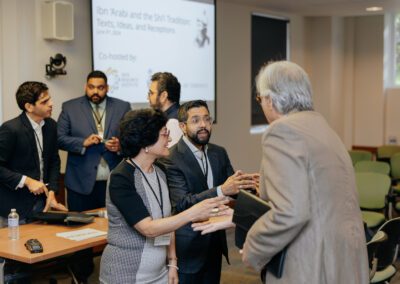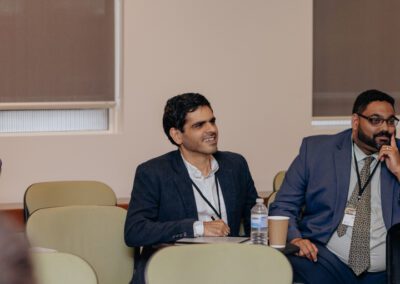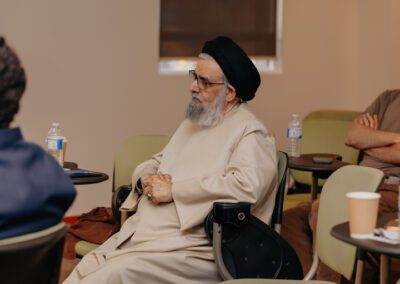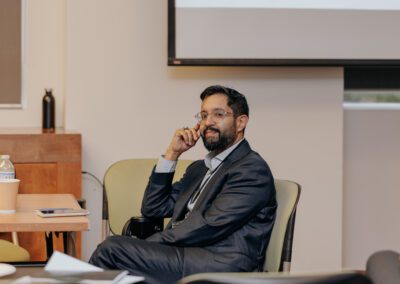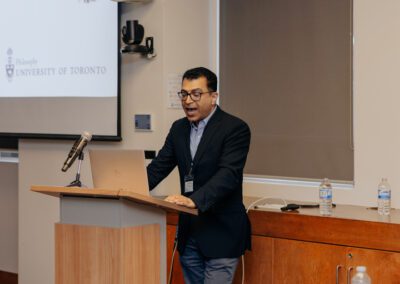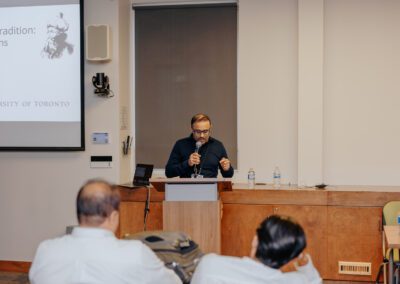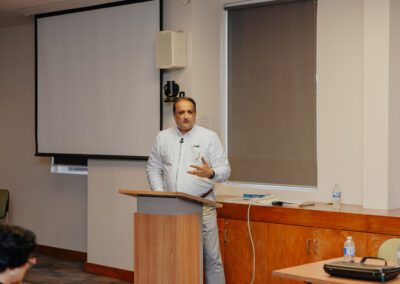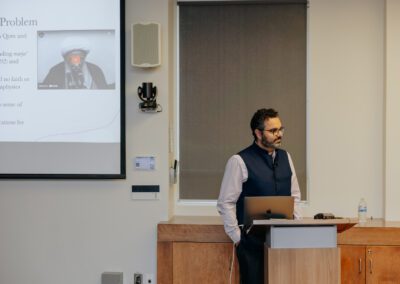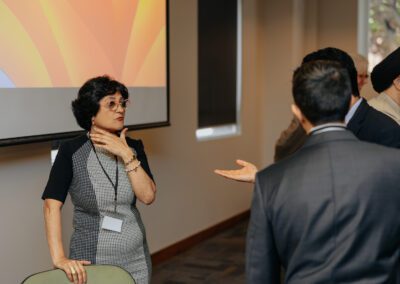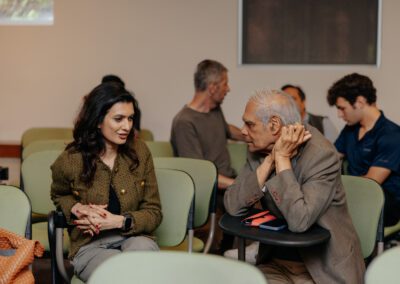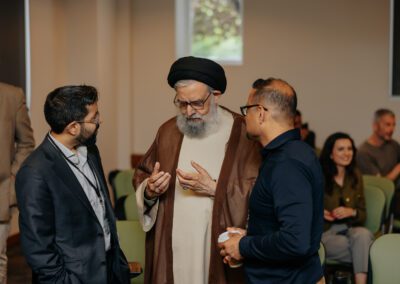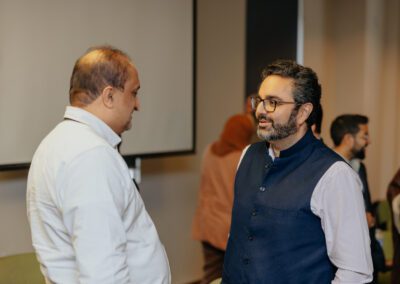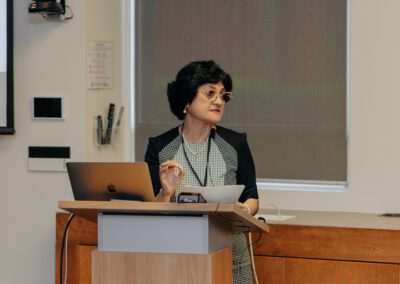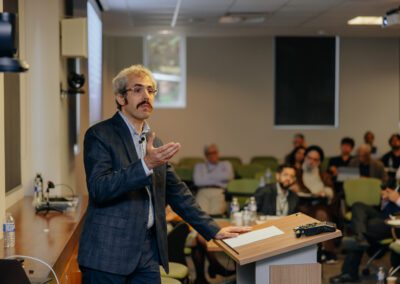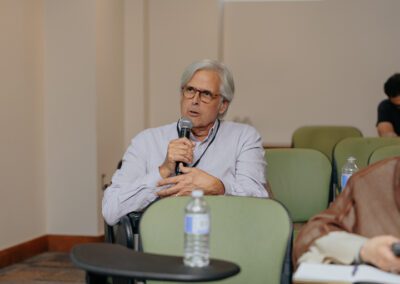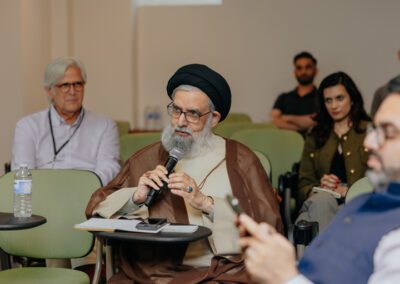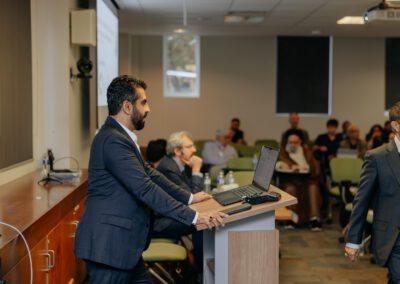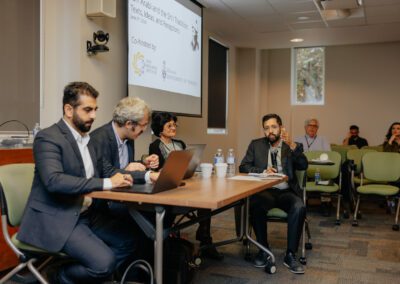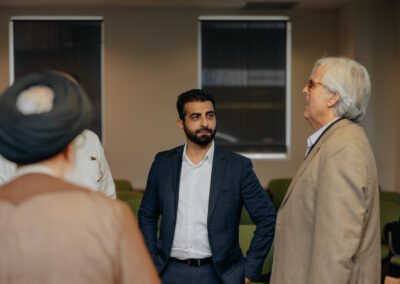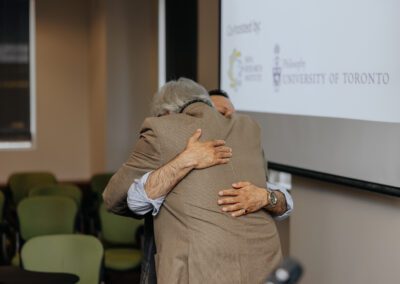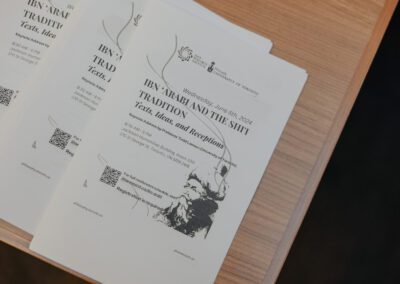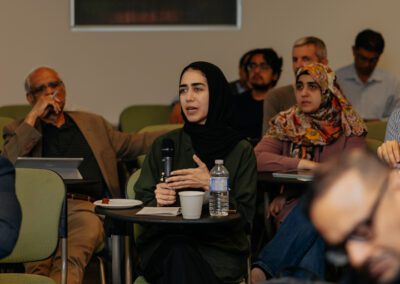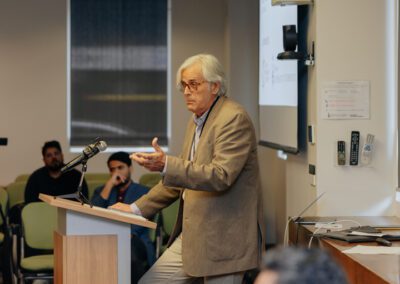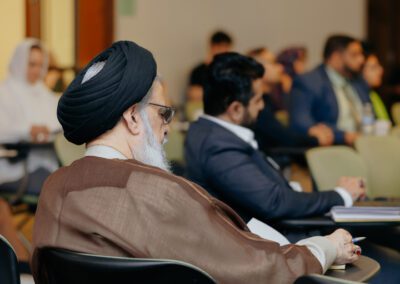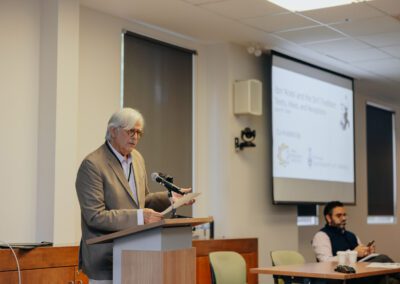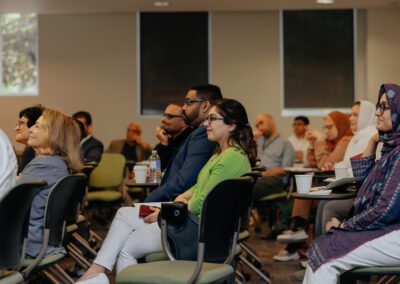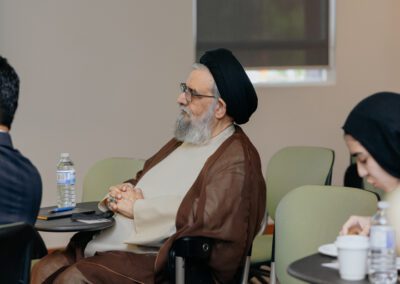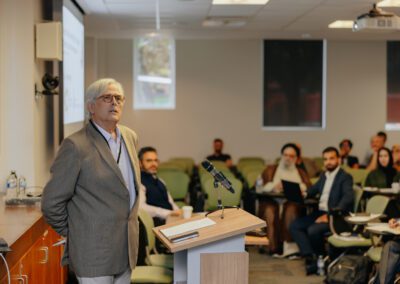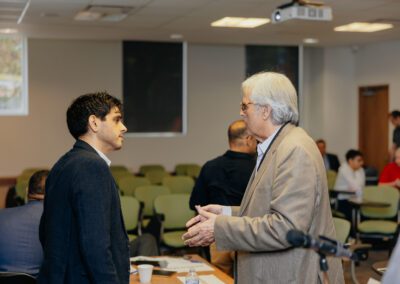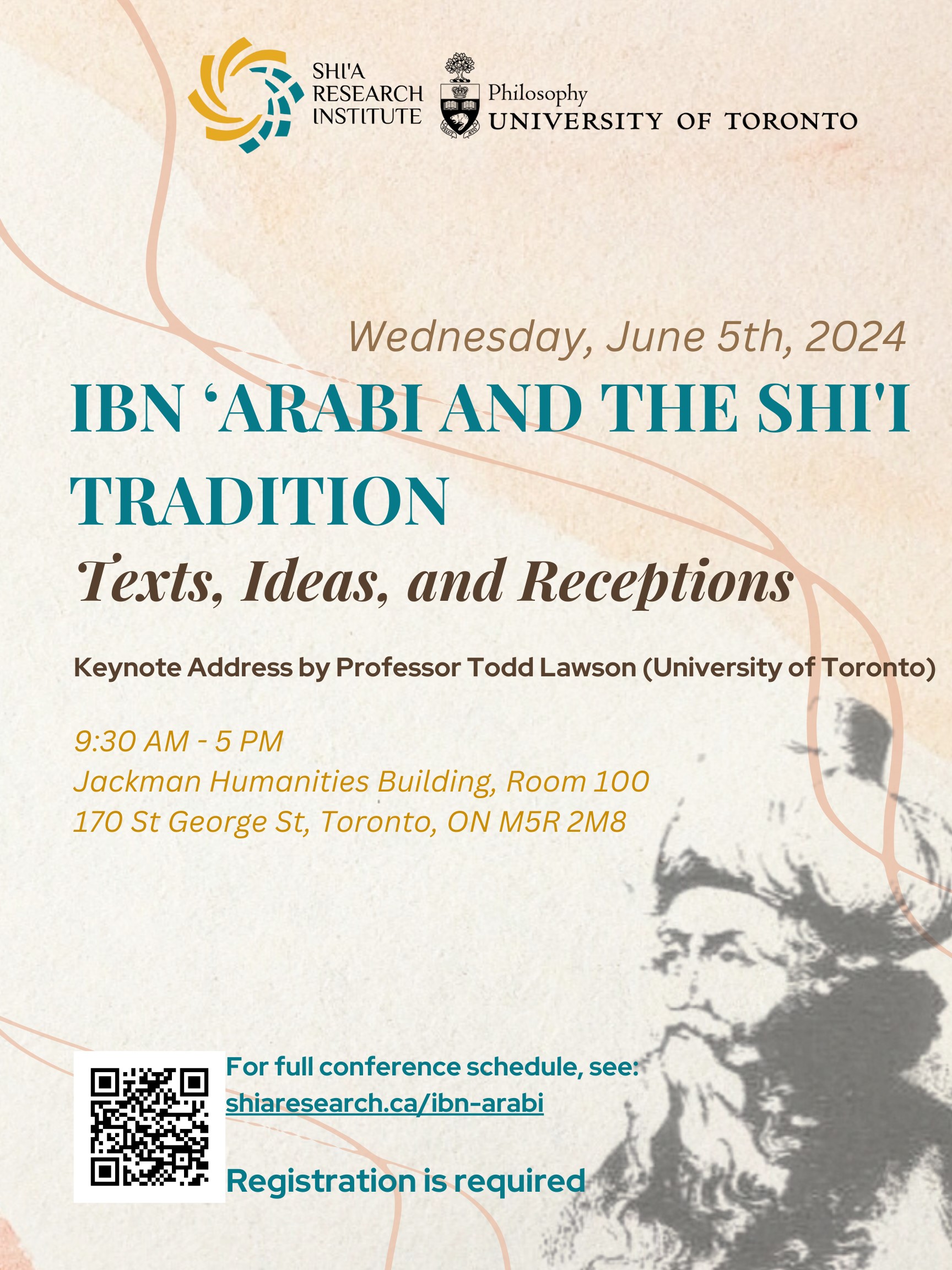Ibn ‘Arabi and the Shi’i Tradition: Texts, Ideas, and Receptions
On June 5th 2024, at the University of Toronto, we met to discuss the reception of Ibn ʿArabī in Shīʿī intellectual production across space and time. This seminar was jointly hosted by the Shi’a Research Institute and the Department of Philosophy at the University of Toronto. View the recordings below, or click here for the full playlist on YouTube.
Abstract:
Just as ‘post-classical’ philosophy in Islam is associated with the many receptions of Avicenna (d. 1037), similarly the broader scope of Islamic thought is punctuated with the receptions of the Andalusian Sufi buried in Damascus, Muḥyī al-Dīn Ibn ʿArabī (d. 1240), undoubtedly one of the most intriguing and influential figures in Islamic intellectual history. His major literary production, especially Fuṣūṣ al-ḥikam (The Ring-settings of Wisdoms) and al-Futūḥāt al-Makkīya (The Meccan Revelations) has spawned a considerable commentary tradition, including receptions and critiques written by Shīʿī thinkers, starting with ʿAbd al-Razzāq Kāshānī (d. 1336) and Sayyid Ḥaydar Āmulī (d. after 1385) in the pivotal fourteenth century.
This workshop will focus upon the reception of Ibn ʿArabī in Shīʿī intellectual production across space and time. Because we are concerned with a thinker who had a complicated relationship with falsafa and ḥikma as possible permutations of philosophy, and because his adherents and respondents often did not self-identity as philosophers, and because we are concerned with the rhetoric, spirit and form of argumentative expressions, we take philosophy in a broad sense to refer to genres of writing beyond the narrow labels of falsafa and ḥikma.
In that sense, William Chittick in his entry in the Stanford Encyclopaedia of Philosophy opined that Ibn ʿArabī could be considered as the greatest of Muslim philosophers. How has Ibn ʿArabī been imagined, appropriated, and reconceptualised in Shīʿī scholarship? How did scholars deal with his hermeneutics as well as his metaphysics and his conception of divine friendship and sainthood? What may have been some of the motivations behind doing so and the contestations that arose in the process of integrating his theories? To what extent did the reception of Ibn ʿArabī represent a ‘confessional ambiguity’ among Persianate elites? What is necessary for some thinkers to adopt him as a fellow Shīʿī believer in order to make his work more palatable in Shīʿī scholarly circles?
This workshop will endeavour to address some of these questions and more broadly to investigate the scholarly output of Ibn ʿArabī with a specific focus on its intersection with Shīʿism and the apologetics or polemics that ensued as a result and that formed the emergence of modern Shiʿi philosophy and mystical thought.
Presentations:
Keynote speaker: Todd Lawson
-
Emeritus Professor of Islamic Thought, Department of Near and Middle Eastern Civilizations, University of Toronto
He is emeritus professor of Islamic Thought at the University of Toronto where he spent 30 years teaching, writing and publishing. He also taught at the Institute of Islamic Studies (McGill) for several years in the late nineties. His primary interest has been with the Quran and its interpretation. His early articles on Akhbari Shi’i Tafsír were the first to define the field and a distinct genre of exegesis. He has studied the theological philosophy embedded in and or derived from tafsír from the classical period to the present and focussed on early modern Shi’i a scriptural commentary and developments associated with the writings of the Shaykhiyya and the Babi religion. He has publsihed or edited several books. His most recent, number 14 in Brill’s Texts and Studies on the Quran series, is entitled Intimacy and Ecstasy in Quran Commentary. He lives in Montreal.
Presenters:
-
Nizamudin Ahmed – Florida International University
-
Emaan Alebban– Providence College
-
Mukhtar H Ali – University of Illinois Urbana-Champaign
-
Vinay Khetia – Shi’a Research Institute
-
Mohammad Amin Mansouri – Central Washington University
-
Sajjad Rizvi – University of Exeter
-
Eliza Tasbihi – McGill University
-
Cyrus Zargar – University of Central Florida





